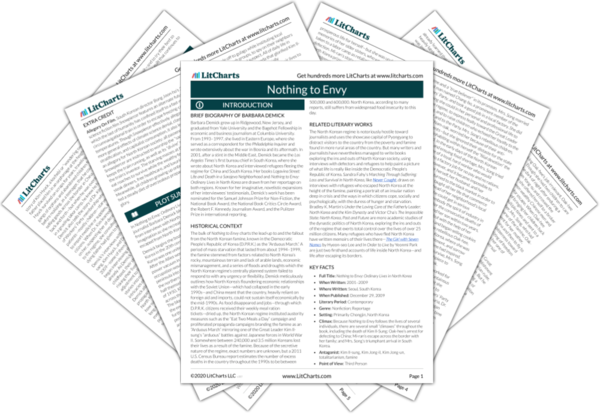This passage shows readers how the government crackdown on “antistate activities” was used to violently, systematically weed out any threat, large or small, to the Communist, isolationist status quo in North Korea. Even as the government took food from hungry citizens and profited off their pain and starvation, it sought to destroy any dissent, industry, or individual enterprise. People doing their best to get by in dangerous, unimaginable times of famine were punished harshly—and sometimes paid for their crimes with their very lives.
